Learn the ecommerce business advantages of single vendor and multi-vendor marketplace websites.
Key Takeaways
- Single vendor and multivendor marketplaces offer distinct benefits.
- Single vendor concept in ecommerce website provides simplicity for sellers and buyers, with a focus on a single seller’s products.
- Multi vendor ecommerce website offer variety, competition, and scalability by allowing multiple sellers to list their products.
- Multi-vendor marketplaces can attract more customers and generate higher revenues due to the wider product selection.
- Understanding the differences and advantages of each marketplace model is crucial for businesses seeking to establish an online presence.
The choice between single vendor and multivendor marketplaces websites plays a pivotal role in shaping the success and growth of online businesses. This blog delves into the advantages of these two distinct models, shedding light on the unique benefits they offer. We’ll explore the efficiency and control of single vendor ecommerce websites, often referred to as the diversity and scalability of multi vendor ecommerce websites, also known as multi-vendor e-commerce websites. Whether you’re a budding entrepreneur or a seasoned online retailer, understanding these options is essential to making informed decisions for your e-commerce venture.
Multi vendor ecommerce website marketplace is well-suited for vendors, who are looking forward to stepping into the Ecommerce market. An ecommerce marketplace platform is an ideal, dynamic and cost-effective marketplace ecommerce solution for such small ecommerce vendors.
Benefits Of Single Vendor And Multi-Vendor Marketplace Platform
This blog clearly describes the comparison between the advantages of single vendor and multi-vendor marketplace. Both vendor platform has their own advantages. Here, take a look at the video to learn more about the benefits of single vendor and multivendor marketplaces.
What Is Single Vendor Ecommerce Website?
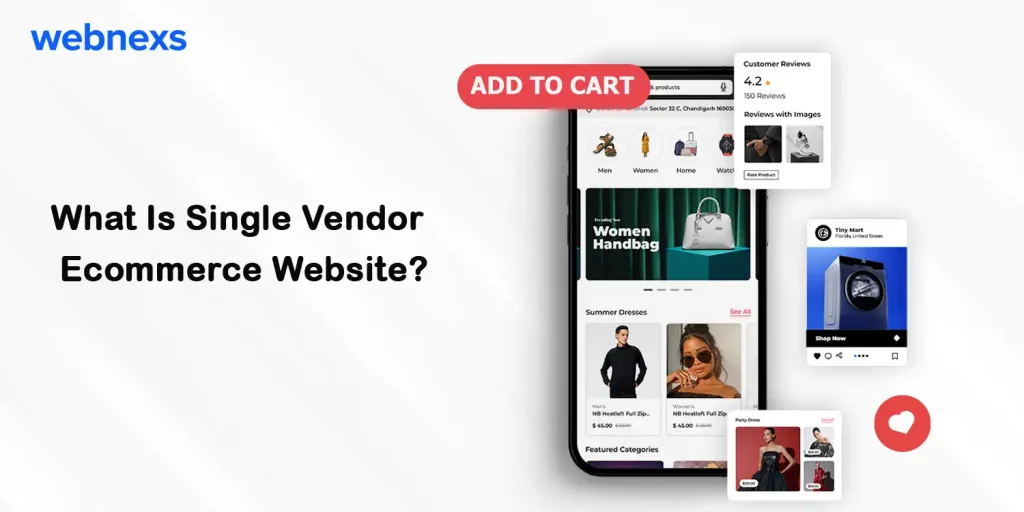
Single Vendor meaning in an ecommerce website marketplace is where a single seller sells its products to multiple customers. There are only two parties involved in this easy buying and selling process, i.e. the buyer and the seller.
Single vendor marketplace doesn’t offer a broad range of products to its customers. Single-vendor marketplace websites are also known as Stand-Alone websites, but the single vendor advantages many brands for different reasons.
Ecommerce Website Single Vendor Advantages
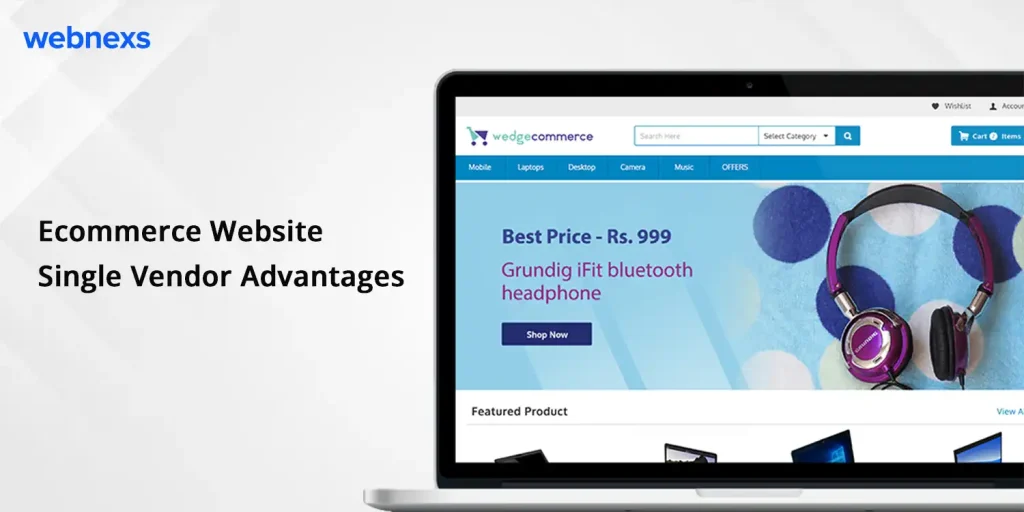
- Creating and maintaining a relationship with one supplier is easier than with two or more.
- Administrative as well as other supplementary costs are reduced when you place orders with just one supplier.
- You can maximize volume leverage to achieve attractive pricing.
- It’s easy to streamline and incorporate systems with a single supplier.
- You may be capable of negotiating to receive little, regular deliveries and so develop an inventory control.
Read More: Multi Vendor Ecommerce App Development: How To Build One For Your Business?
What Is Multi Vendor Ecommerce Website?
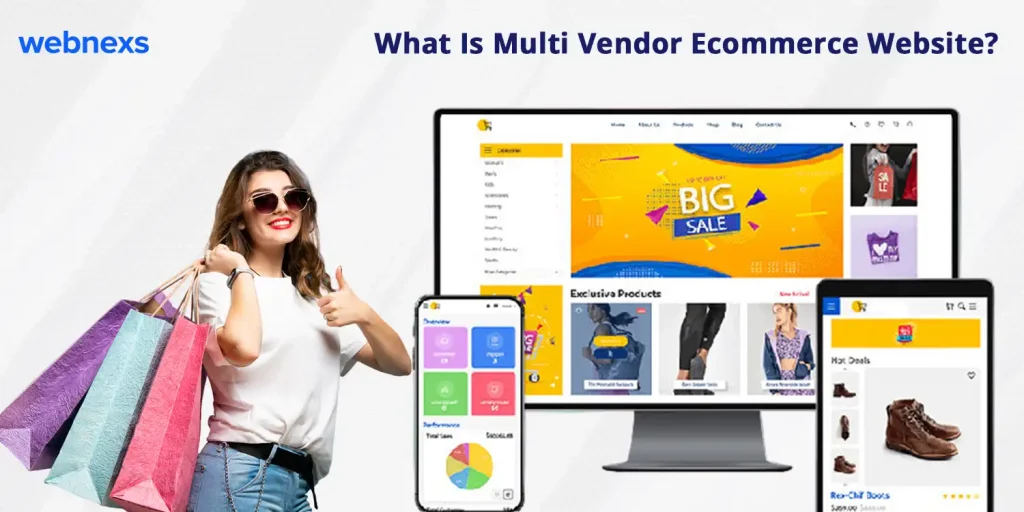
Multi Vendor definition in ecommerce website marketplace is an online store where multiple sellers have come together to sell their products to various customers.
In general, in a Multi-vendor marketplace system, there are numerous sellers will be present, who sell their products on the multi-seller marketplace owned by an administrator.
Customers get the chance to buy the product from different sellers or brands. In a marketplace ecommerce platform, there are basically three entities involved namely:
- Admin,
- Vendor, and
- Customer
All the ecommerce vendors are advised to get themselves registered on the admin’s site so that they can sell their products on the admin’s website. Here the multi-vendor vs multi-store itself has different meanings but serves the same benefits to the customers and vendors.
Read More: Key Things To Consider Building Multi-Vendor Marketplace
Ecommerce Website Multi Vendor Advantages
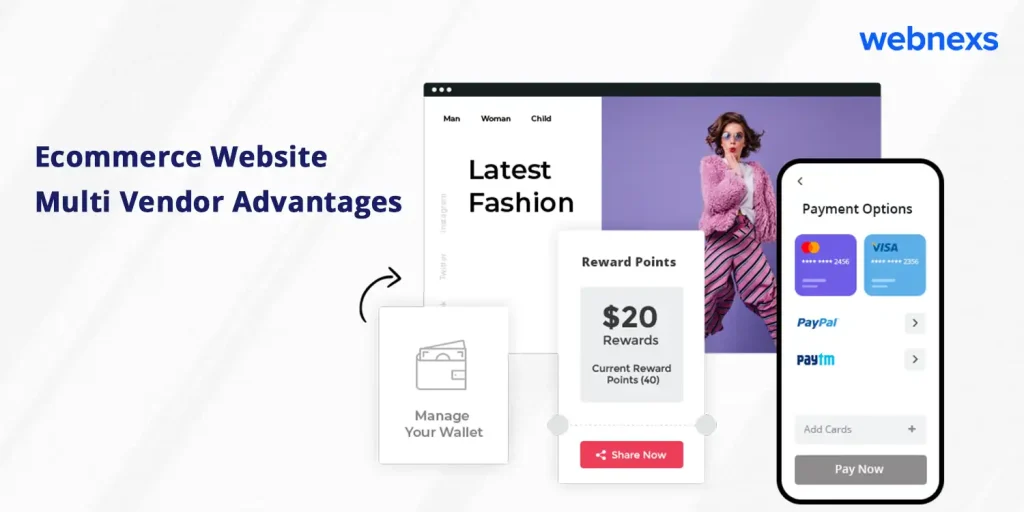
- If one of your suppliers is bought by a competitor, or runs into financial or business difficulties, you have at least one supplier to fall back on.
- While you may not have so much leverage with each supplier, there are opportunities to take advantage of competition between them, although this will depend to some extent on your importance as a customer to each supplier.
- Demand fluctuations can be more easily manageable if you have a choice of suppliers with whom to adjust order volumes.
- Having two or more suppliers will expand your company’s ability to circumvent supply disruptions
So, these are the basic difference between a single vendor and multivendor marketplaces.
Conclusion
Comparing single vendor and multivendors marketplace platforms, it is best advised to go with a multi-vendor marketplace than a single-vendor marketplace as it has lots of scope in the E-commerce business. You can hire a certified Headless E-commerce Marketplace to build your E-commerce marketplace.
For more details, concerning Marketplace development, contact Webnexs sales for a ecommerce marketplace solutions.
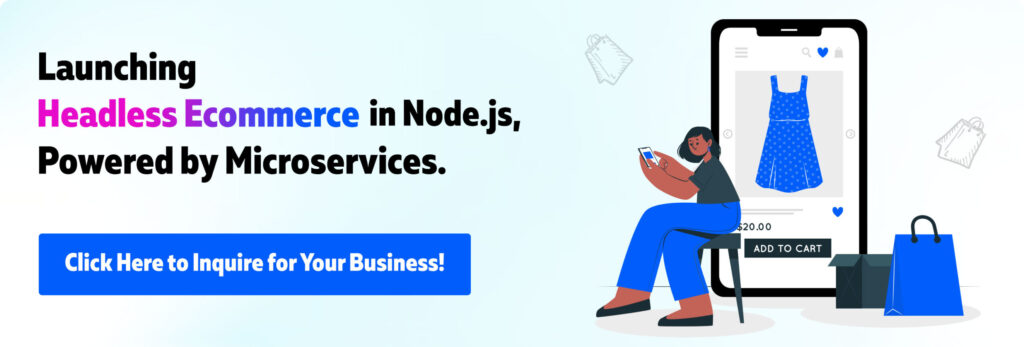
Frequently Asked Questions(FAQs)
1. What is a Multi-vendor marketplace?
A “multi-vendor marketplace” is a website whose owner permits numerous sellers to sign up to sell their goods there. It is comparable to a shopping mall where various vendors operate their individual businesses together.
2. What is the growth potential for single vendor and multivendor marketplaces?
Comparing it to an online store, the multi-vendor market is less financially risky. The latter is riskier because the owner specializes in just one market. On the other hand, the market has a number of vendors who conduct business with their various product categories under a single roof.
3. How much would it cost to develop a single vendor vs multi vendor website?
When it comes to designing and launching costs, the owner must make a careful investment in both the online store and the multi-vendor marketplace. A small retailer with a tight budget, however, can benefit from opening an online store.
4. What are the benefits of a single vendor ecommerce website?
A single vendor website is easier to set up and manage, offering complete control and faster decision-making. It’s ideal for small businesses and startups looking to establish an online presence quickly.
5. Why choose a multi vendor ecommerce website?
A multi-vendor platform allows multiple sellers to offer products, increasing product variety and customer choice. It can scale rapidly and create a competitive environment among vendors.
6. How does a single vendor site benefit customers?
Single vendor sites provide a seamless shopping experience with a single checkout process. This simplicity can lead to faster purchases and reduced complexity for buyers.
7. What advantages do multi-vendor marketplaces offer to customers?
Multi-vendor platforms offer a wider selection of products, competitive pricing, and the convenience of one-stop shopping. Customers benefit from variety and can find unique items from various sellers.
8. How does a single vendor site affect vendor relationships?
Single vendor sites typically involve a direct relationship with the supplier, fostering personalized partnerships and easier communication.
9. How do multi-vendor sites affect vendor relationships?
Multi-vendor platforms require managing multiple vendor relationships, which can be more complex but also provide opportunities for growth and collaboration with various suppliers.
10. What are the scalability implications of single vendor and multi-vendor websites?
Single vendor sites may have limitations when it comes to scalability, while multi-vendor marketplaces can grow quickly and accommodate more sellers and products, making them ideal for expanding businesses.
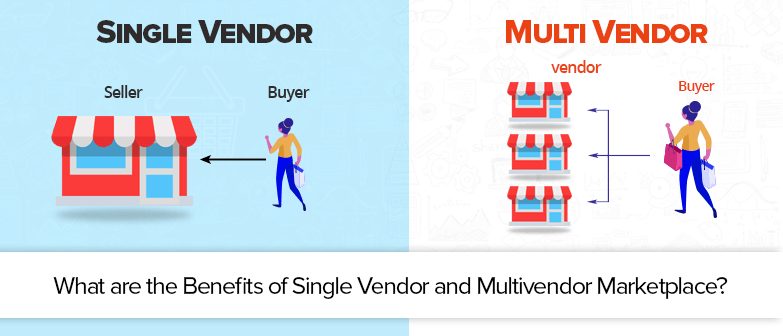

Leave a Reply to Fridie Cancel reply